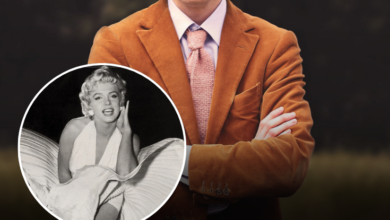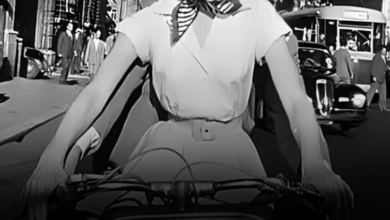Denzel Washington on the Film That Ruffled Feathers: ‘It Was Dangerous and Touchy’
OPINION: This article may contain commentary which reflects the author's opinion.
When you think of actors known for tackling controversial roles or subject matter, Denzel Washington isn’t typically the first name that comes to mind. Unlike some of Hollywood’s more outspoken figures or those who gravitate toward provocative material, Washington has generally avoided the stormy waters of controversy. Instead, he’s built a career playing complex and nuanced characters, ranging from heroes to antiheroes, with his most famous role as the corrupt cop Alonso Harris in Training Day standing out as one of his more morally ambiguous performances. Throughout his career, Washington has maintained an image that’s largely unscathed by scandal, positioning him alongside icons like Tom Hanks or Meryl Streep, whose public personas remain largely untarnished.
However, as Washington himself admits, it’s impossible to be in show business for as long as he has without occasionally ruffling a few feathers. In a 2010 interview with Entertainment Weekly, the Oscar-winning actor reflected on some of his most well-known roles and discussed the one that garnered significant pushback. That film was The Hurricane (1999), a biopic about the boxer Rubin “The Hurricane” Carter, whose wrongful conviction for triple homicide and subsequent release after nearly two decades in prison made headlines in the 1980s.
Directed by Norman Jewison, The Hurricane told the story of Carter’s fight for justice, portraying him as a man wronged by the system and wrongfully convicted due to racist prejudices. While the movie was a commercial success and earned Washington an Oscar nomination, it was also the subject of controversy. Some critics and viewers argued that the film oversimplified Carter’s case, omitting key details about his life and the complexities surrounding his conviction. Rather than portraying the systemic racism that pervades the American justice system, the film was accused of framing the case as the story of a single racist cop’s malice.
“We’ll never know, will we?” Washington said, reflecting on the historical inaccuracies and omissions in the film. “The film was touchy because people were murdered, and a lot of people felt that Rubin did it. So you’re opening old wounds. Malcolm X was more dangerous, but Hurricane might have been more controversial.”
Washington’s comments on the film’s sensitive nature underscore the difficulty of dramatizing real-life events, particularly when those events involve unresolved questions or lingering resentment. The murder case at the heart of The Hurricane involved real victims and families who, for years, believed that Carter had committed the crimes. In this context, Washington’s portrayal of Carter, while championing his fight for justice, opened up wounds for those who felt that the film painted an incomplete or biased picture.
Interestingly, the controversy surrounding The Hurricane also came on the heels of Washington’s involvement in another historically charged film: Malcolm X (1992). Interestingly, director Norman Jewison, who helmed The Hurricane, had originally been signed on to direct Malcolm X. However, after protests over a white filmmaker directing a film about such an important Black figure, Jewison stepped aside and Spike Lee took the reins. This shift was met with intense backlash, especially from Black activists, who worried that Lee, despite being Black, might dilute the story of Malcolm X to make it more palatable for white audiences.
Washington’s reflections on The Hurricane and Malcolm X reveal the delicate balance required when making films about real people and the consequences of oversimplifying complex histories. Washington’s portrayal of both Carter and Malcolm X carried immense responsibility, given their cultural significance. In both cases, the actor took on roles that required immense care in faithfully telling the stories of men whose lives had been shaped by racial injustice. It’s a testament to Washington’s acting prowess that, despite the controversies surrounding these films, his performances were widely recognized, earning him Oscar nominations for both roles.
While The Hurricane might be Washington’s most controversial film, it serves as a reminder of how challenging it can be to address sensitive topics on screen. His reflections suggest that sometimes, the most challenging and controversial stories are the ones that leave the most lasting impact on both the audience and the actor.
In the end, perhaps Washington’s career would have been all the more fascinating if he had courted controversy more often. But, as he proved with both The Hurricane and Malcolm X, when the stakes are high, and the responsibility immense, the most compelling roles are often the most complex—and, occasionally, the most contentious.



